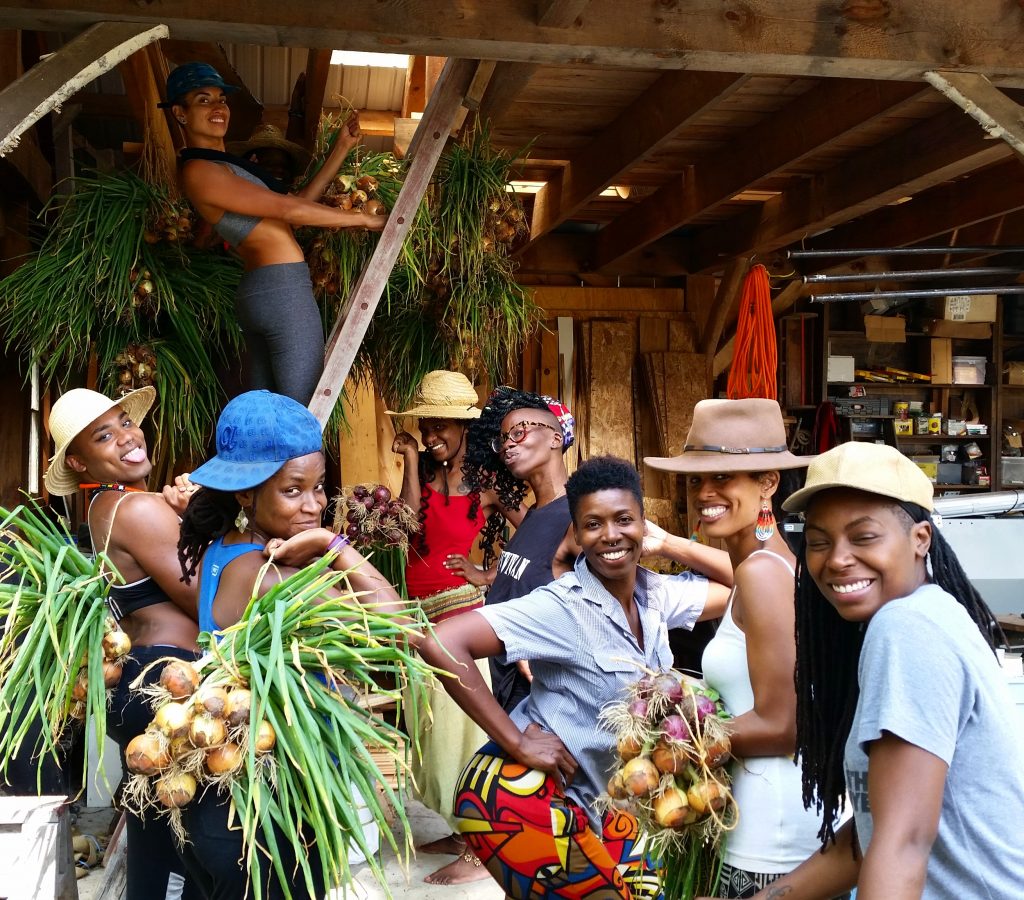With 98% of farmers being white, Black up and coming farmers are finding it hard to join the industry. The documentary Farming While Black discusses this issue and explains that it dates back to before slavery and gained notice during the Great Migration. Black people left the rural south to escape severe racism and harsh treatment, and arrived in the urban North expecting a better future. However, they experienced redlining, leading to an inability to own land and form generational wealth. It was interesting to see how history is still very much a part of our present day ideas and activities. There’s this idea that farming reminds Black people of slavery, so no one wants to participate. The film urges people to change that idea before it’s too late. Some of the people working towards creating a more inclusive and healthy space for Black farmers are Leah Penniman, Karen Washington, and Blain Snipstal.

Leah Penniman started Soul Fire Farms after moving to Albany New York and seeing the need for nutritious food in her neighborhood. She worked with her husband for years and they created their own farm of 80 acres. With the help of volunteers from the community, Leah and her husband have created a safe space where black people can come and learn more about agriculture and healthy lifestyles.

Karen Washington, a resident of the Bronx for over 30 years, started her career in farming after realizing that her neighborhood was home to many empty lots filled with trash. She decided to change the neighborhood around and became part of a group called “gorilla farmers.” Karen has become an important part of New York and advocates for young farmers wanting to get into the territory.

Blain Snipstal traveled to 15 countries to learn more about farming after falling in love with it at 18 years old. He is one of the up and coming farmers who have suffered from discrimination. He explains that it’s either you have the land or you don’t, and unfortunately for Black people, previous laws and historical acts have prevented them from having good credit and the financial portfolio to obtain it. Because of this, Brian formed the Black Dirt Farm Collective as a calling to Black people looking to connect back to their roots before colonization.
The film shows the impact that these three people of color have had on the Black farming community. History has been far from kind to Black people and its clear that acts from the past impact them more we may realize. I think it’s so important to bring together different aspects of the Black farming community whether it be rural and urban, old and young, new and returning, etc. This film was a great way to show how to do so.

Leave a Reply